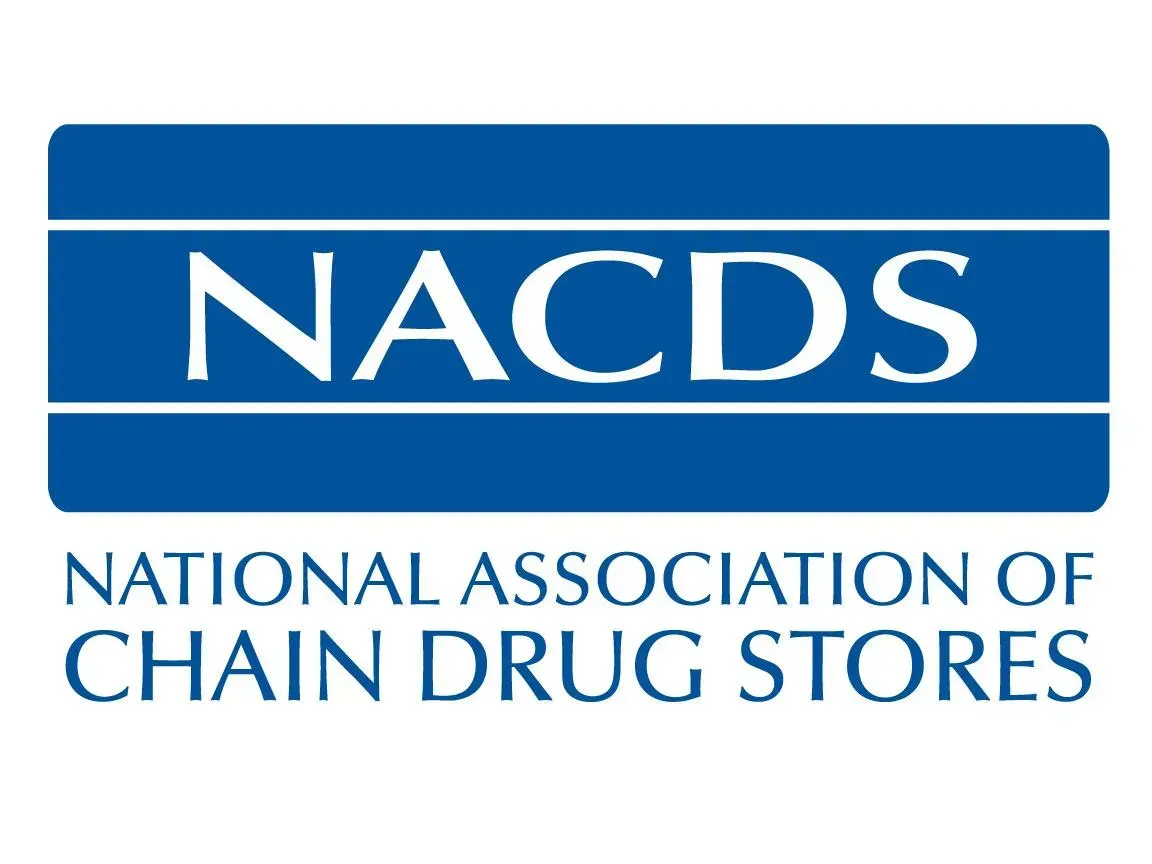One of the strengths of the National Association of Chain Drug Stores is our approach to strategic planning. Specifically, each year we produce a plan that is focused, goal-oriented, member-centric, forward-thinking, efficient, effective and extremely flexible to adapt to any circumstance … to plan for the unexpected.
That is exactly what is needed for NACDS to help members deliver on their vision to help improve the health and wellness of Americans. And that is exactly what is needed for NACDS to help our nation confront some of the most pressing issues facing our society.

Steve Anderson, National Association of
Chain Drug Stores
This ability to plan for the unexpected — and to execute with precision — is made necessary by the dynamics surrounding us. The country is feeling the effects of an unexpected policy environment … that reflects the unexpected political environment … that has profound impact on the business environment in which our member companies and NACDS operate.
Looking forward to 2018 — an election year and a year in which many tough public policy challenges remain in play — planning for the unexpected will continue to define NACDS’ mode of operations.
Access agenda delivers clarity
Amid the chaos, NACDS remains focused on pro-patient and pro-pharmacy principles, which have the potential to improve health care and to advance communities throughout the nation.
In executing on those principles, NACDS is bringing to the cause the modern tools of advocacy, the collaborative and creative force of a think tank, and the responsiveness and passion of a startup.
In 2017, NACDS started referring to our work as the Access Agenda. We are making the case that pharmacists provide access to better health care every day, and that NACDS is available to provide access to health policy solutions as well.
NACDS’ Access Agenda has three key components:
• Preserve — Preserving patients’ access to care.
• Expand — Expanding access to newer services.
• Partner — Working as partners for stronger and safer communities.
Preserving access
Mark Twain wrote, “History doesn’t repeat itself, but it does rhyme.” In other words, events of the future are never exactly identical to events of the past, but they can be remarkably close. Still, even similar events can have nuances that must be identified, must be understood and must be figured into strategic calculations.
This understanding of Mark Twain’s words applies ideally to those issues on which NACDS must defend against threats that could jeopardize access to patient care.

It may be tempting to dismiss as commonplace the fact that NACDS advocates to prevent or mitigate reimbursement cuts and other potentially harmful policies; however, each of these battles is subject to the unique challenges of the day, and each of these battles can prove highly significant in a given year and over the course of an extended period of time.
In 2018, NACDS and allied organizations will continue to assure that states appropriately implement pharmacy reimbursement according to the Affordable Care Act provisions. Currently, NACDS, the National Community Pharmacists Association, and the Washington State Pharmacy Association are engaged in a lawsuit to challenge reimbursement in Washington State that pays pharmacies below the actual cost to dispense Medicaid prescriptions. Fighting this issue in court is important for preserving patient care in Washington state — and, by ripple effect, in other states.
In 2018, the story also will continue to play out on pharmacy choice and access for military families and veterans. It is clear that the Department of Defense is making decisions based on short-term budgetary pressures — decisions that we believe will increase health care costs long-term as a result of diminished health outcomes. This is an issue that will demand NACDS’ attention every step of the way in 2018.
NACDS also continues to advance our position on direct and indirect remuneration fees, the current use of which is inflicting unacceptable uncertainty and costs on pharmacies. A Medicare proposed rule issued by the Centers for Medicare and Medicaid Services in late 2017 suggests that the agency is hearing the concerns expressed by pharmacies. This is an issue that will demand continued focus in 2018.
Expanding access
If the fight to preserve access can be likened to “defense,” then the fight to expand access can be likened to “offense.” NACDS will remain equally focused on the offensive side of the equation in 2018.
I am really excited about the ways that NACDS in 2018 will continue to tell the story of pharmacy’s role in health care delivery and will seek new opportunities to extend the appreciation of NACDS members’ role in improving health and wellness nationally.
One outstanding example is that NACDS will engage extensively in the 15th Annual World Health Care Congress, which will be held April 29 to May 2 in Washington, D.C.
This is one of the most prestigious events of its kind, with over 1,500 decision makers from all sectors of health care. NACDS will take its place among those committed to meaningful partnership and change for the good of health care delivery in our nation.
Engagement in the World Health Care Congress is one example among many others of NACDS’ proactive approach to positioning pharmacy not only as a health care provider but also as a health care solution provider.
Another example is the 2017 study by the Johns Hopkins Center for Health Security, funded by NACDS — titled “Serving the Greater Good: Public Health and Community Pharmacy Partnerships.”
In releasing the study, Gigi Kwik Gronvall, senior associate at the Johns Hopkins Center for Health Security, said: “When pharmacists are integrated into direct patient care in a team with other health professionals, there are positive effects on patient outcomes as well as reduced health care costs. What’s encouraging, though, is that more can be done to ensure pharmacy professionals practice at the ‘top of their license’ — the peak of what they are capable and licensed to do to support public health.”
In 2018, NACDS will continue to advance recommendations in this study — as well as generate additional third-party validation of pharmacy’s value.
These efforts align with NACDS’ proactive public policy agenda at the federal and state levels, which includes: optimizing patient care models, including appropriate roles for pharmacists and pharmacy technicians alike; expanding pharmacists’ scope of practice in areas such as vaccinations and the administration of health tests; advancing legislation that would improve Medicare patients’ access to pharmacist-provided services; and more.
Partnering for action
NACDS views its advocacy for pharmacy as a shared value proposition. The pro-patient, pro-pharmacy agenda requires a consistent approach to public policy, in which the viability of pharmacy is preserved and the value of pharmacy is advanced.
Just as important are the many ways in which NACDS members work for the betterment of society from a variety of perspectives — and these aspects of the NACDS Access Agenda will remain in focus in new and exciting ways in 2018.
In time for the 2018 NACDS RxImpact Day on Capitol Hill — the 10th Anniversary of this event during which pharmacy advocates visit their members of Congress in Washington, D.C. — NACDS will release a report on the state of community engagement, corporate social responsibility and shared value initiatives among NACDS chain members.
As NACDS chairman Alex Gourlay — co-chief operating officer of Walgreens Boots Alliance and president of Walgreens — has said: It is important for pharmacy to tell this story, and to continue to improve this story, for the benefit of the communities and individuals whom we serve.
I cannot think of an issue in which pharmacy’s partnership for societal solutions is more vital than in the opioid abuse epidemic.
In 2017, NACDS announced four new public policy recommendations, based on pharmacists’ experience on the front lines of care and designed to complement pharmacy’s ongoing collaboration with other health care professionals and with law enforcement. In 2018, we will continue to work to advance these public policy recommendations, which relate to prescribing practices, the use of prescription drug monitoring programs, mandatory e-prescribing and drug disposal.
It is essential to NACDS members that their trade association remain focused — amid the dramatic changes in our operating environment — on the important work at hand. Given the magnitude of the issues on which we are engaged, it also is appropriate to say that, at this unsettling time, the nation needs a smart, strong and powerful NACDS.
With the engagement of the membership, a smart, strong and powerful NACDS is exactly what is planned for 2018 and beyond.
Steve Anderson is president and chief executive officer of the National Association of Chain Drug Stores (NACDS).









